
1. Mzimba District
① Mzimba LEA Primary School
These are third graders enrolled at Mzimba LEA Primary School. Her bright smile reflects the nourishment and support she receives through the school feeding program. Her mother conveyed this heartfelt message through the principal: “I struggled with my older siblings often falling ill due to malnutrition while raising them, but now with her, she rarely gets sick. I realize it’s because of the porridge she eats at school.”
Seibo’s feeding support activities have a positive impact not only on children but also on families.
② Matewu Primary School
This student attending Matewu Primary School receives daily meals without fail and is already enjoying school. Just a few years ago, keeping such young children in school, especially in lower grades, was particularly challenging before the introduction of the feeding program.
Previously, many children took weeks, sometimes months, to adjust to school life. However, the introduction of the feeding program has greatly changed this situation. Knowing that warm porridge awaits them every morning, children now look forward to going to school, and the same goes for preschoolers.
Porridge not only nourishes the children’s bodies but also ignites excitement for learning.

At Matewu Primary School, students are gradually developing hygiene habits in their daily lives thanks to Seibo’s school feeding program.
Before receiving their porridge, the children wash their hands and clean their cups using buckets and soap provided by the program. This simple yet essential routine has now become deeply ingrained in their school life.
Teachers proudly report that the students have become more conscious of hygiene and have even adopted the habit of washing their hands and utensils before meals at home.
Through education on nutrition and hygiene, our program is fostering better health and a sense of responsibility among the younger generation.

③ Visit by JICA Volunteer Mariko
In early May, Seibo had the opportunity to welcome Mariko, a Japanese JICA volunteer working as a health officer at Salima District Hospital. With her expertise in health and nutrition, Mariko showed a strong interest in the nutritional benefits of Seibo’s school feeding program and conducted a field visit to learn more in depth.
She arrived in Mzimba on May 4, and from May 5 to 7, we visited three schools each day, for a total of nine schools together. On the first day of school visits, May 5, Mariko was joined by Manami Hagiwara, a fellow Japanese national affiliated with the Mzimba-based NGO ISAPH. Their presence strongly highlighted the spirit of collaboration and mutual learning among development partners working in the region.
During the visits, Mariko actively engaged in discussions and attentively observed the situation at each school. She joyfully interacted with the students, helped serve porridge, and sat with them during mealtime.
She also spent time with the volunteer cooking staff, sharing warm conversations and deepening her understanding of their daily responsibilities. At one school, she even took on the task of chopping firewood—usually done by the volunteers—demonstrating her deep respect for the program.
On the final day, Mariko gave short nutrition lessons at three schools, speaking to the children about the importance of eating well for their health and learning. She expressed how much she enjoyed the experience and shared her hope to introduce a similar school feeding initiative in Salima District, where she is currently volunteering.
This visit not only reaffirmed the significance and impact of Seibo’s work but also opened doors for further collaboration and the potential expansion of the model to new areas.


Mariko and Manami enjoying porridge at Kaputa Primary School

Serving porridge at Mzimba LEA Primary School
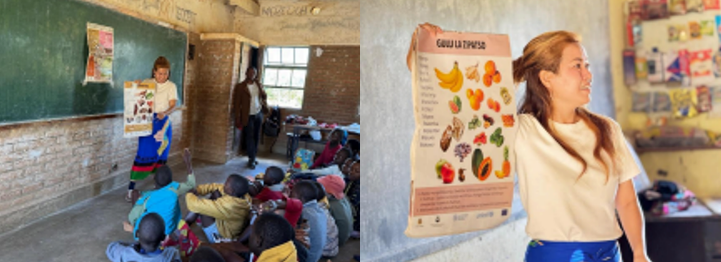
Mariko giving a nutrition talk at Kazengo and St. Paul’s Primary Schools

Visit to Machelecheta Primary School

Mariko taking a commemorative photo with the Seibo Mzimba team on the final day of school visits
④ Visit from the Embassy of Japan
On May 20, Mr. Suzuki and Mr. Hugo Mlewa from the Embassy of Japan visited Seibo’s Mzimba office as part of the local assessment process for the Grassroots Human Security Grant Aid (GGP). The purpose of their visit was to evaluate proposed cooking facility construction at three schools: Machelecheta Primary School, Chabere Primary School, and Kanyerere Primary School. During the site inspections, it became evident that improvements to the cooking environment are urgently needed. We received encouraging feedback from both visitors, and we are hopeful for a positive outcome on our grant application.
 *Scene from Kanyerere Primary School*
*Scene from Kanyerere Primary School*
Effective operation of the school feeding program requires strong collaboration among all stakeholders.
Accurate record-keeping has been emphasized, and the success of the program depends on each party—office staff, parents, and school principals—fulfilling their roles responsibly.
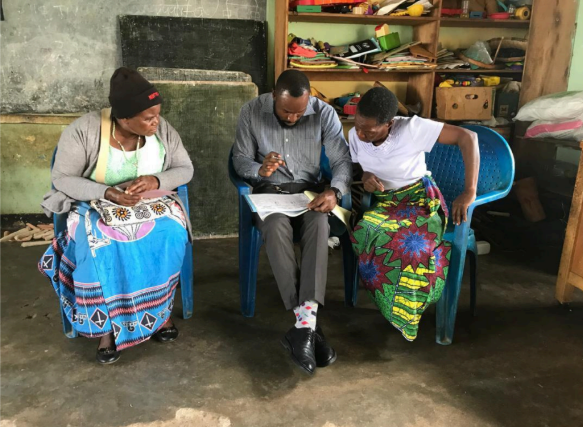 (*Photo: Tibwirane Nursery*)
(*Photo: Tibwirane Nursery*) 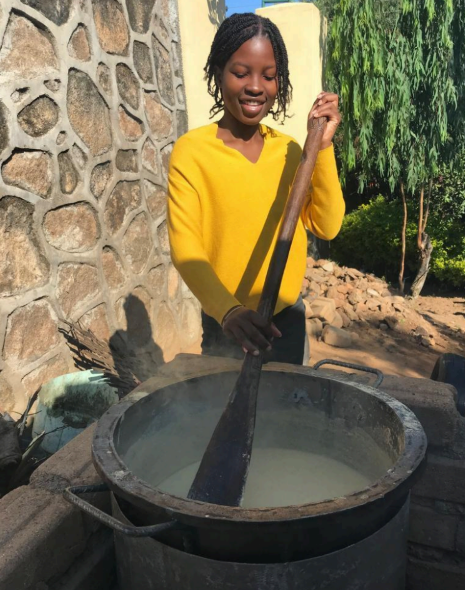 Providing meals at schools is not just about feeding children—it’s about consistently delivering nutritious, warm meals to the generation that will shape Malawi’s future. For our on-site staff, maintaining high standards in porridge preparation is always a top priority. (*Photo: Tinashe Nursery*)
Providing meals at schools is not just about feeding children—it’s about consistently delivering nutritious, warm meals to the generation that will shape Malawi’s future. For our on-site staff, maintaining high standards in porridge preparation is always a top priority. (*Photo: Tinashe Nursery*) 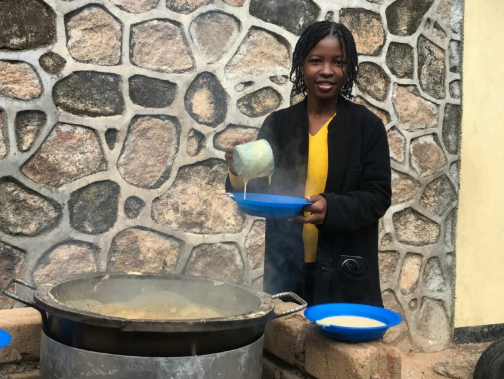 Delivering meals to children is an incredibly rewarding experience for me. Seeing the joy and sparkle in their eyes when they receive their food fills my heart with warmth and happiness. (*Photo: Tinashe Nursery*)
Delivering meals to children is an incredibly rewarding experience for me. Seeing the joy and sparkle in their eyes when they receive their food fills my heart with warmth and happiness. (*Photo: Tinashe Nursery*) 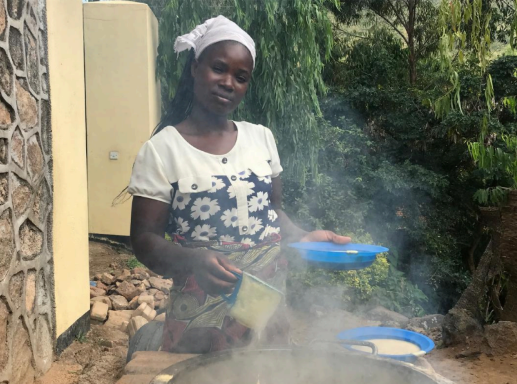 Preparing nutritious meals every day requires great dedication and a strong sense of responsibility from the cooking staff. The children’s smiles and energy when receiving their porridge are the greatest reward for all our efforts. (*Photo: Tinashe Nursery*)
Preparing nutritious meals every day requires great dedication and a strong sense of responsibility from the cooking staff. The children’s smiles and energy when receiving their porridge are the greatest reward for all our efforts. (*Photo: Tinashe Nursery*)  School committees and parents actively participate in stakeholder meetings, deepening their engagement with the community while reaffirming their responsibilities to support the effectiveness and sustainability of the feeding program. (*Photo: Chiringani CBCC, May 8*)
School committees and parents actively participate in stakeholder meetings, deepening their engagement with the community while reaffirming their responsibilities to support the effectiveness and sustainability of the feeding program. (*Photo: Chiringani CBCC, May 8*) 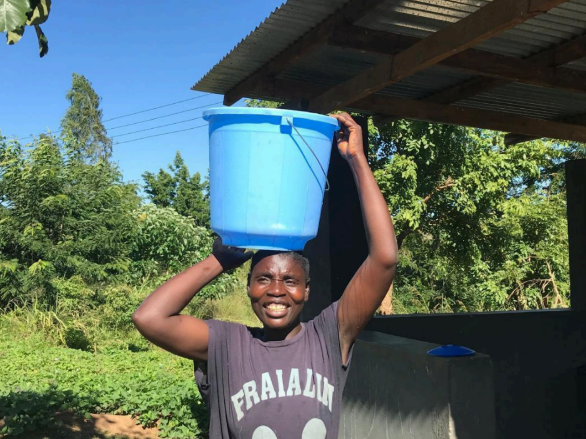 Committee members don’t just leave cooking duties to parents and staff—they also take part themselves, such as fetching clean water from wells. This kind of involvement ensures the consistent use of safe water and helps maintain hygiene standards. (*Photo: Chiringani CBCC, May 19*)
Committee members don’t just leave cooking duties to parents and staff—they also take part themselves, such as fetching clean water from wells. This kind of involvement ensures the consistent use of safe water and helps maintain hygiene standards. (*Photo: Chiringani CBCC, May 19*) 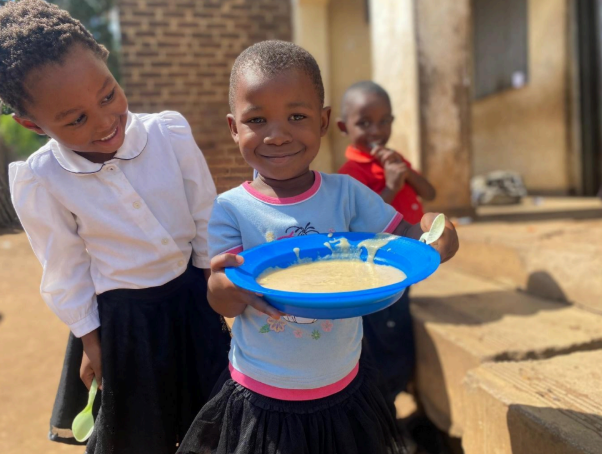 Above all, isn’t it the aroma of freshly cooked porridge and the sense of joy from a warm meal that brings out those radiant smiles on the children’s faces? (*Photo: Makuwika Nursery*)
Above all, isn’t it the aroma of freshly cooked porridge and the sense of joy from a warm meal that brings out those radiant smiles on the children’s faces? (*Photo: Makuwika Nursery*)
School Feeding Support Data (May)
Total Meals Provided: 330,974
Northern Region (Mzimba): 290,278 meals
Southern Region (Blantyre): 40,696 meals



